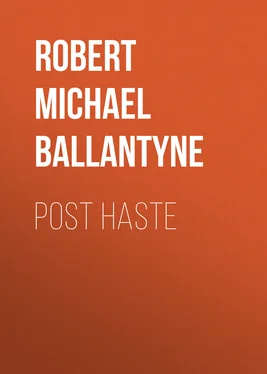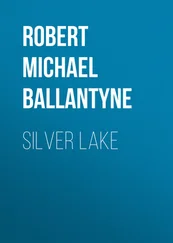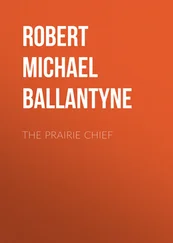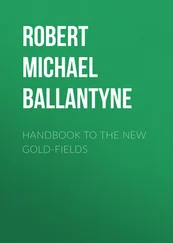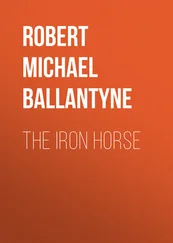Robert Michael Ballantyne - Post Haste
Здесь есть возможность читать онлайн «Robert Michael Ballantyne - Post Haste» — ознакомительный отрывок электронной книги совершенно бесплатно, а после прочтения отрывка купить полную версию. В некоторых случаях можно слушать аудио, скачать через торрент в формате fb2 и присутствует краткое содержание. Жанр: foreign_children, literature_19, foreign_antique, foreign_prose, на английском языке. Описание произведения, (предисловие) а так же отзывы посетителей доступны на портале библиотеки ЛибКат.
- Название:Post Haste
- Автор:
- Жанр:
- Год:неизвестен
- ISBN:нет данных
- Рейтинг книги:5 / 5. Голосов: 1
-
Избранное:Добавить в избранное
- Отзывы:
-
Ваша оценка:
- 100
- 1
- 2
- 3
- 4
- 5
Post Haste: краткое содержание, описание и аннотация
Предлагаем к чтению аннотацию, описание, краткое содержание или предисловие (зависит от того, что написал сам автор книги «Post Haste»). Если вы не нашли необходимую информацию о книге — напишите в комментариях, мы постараемся отыскать её.
Post Haste — читать онлайн ознакомительный отрывок
Ниже представлен текст книги, разбитый по страницам. Система сохранения места последней прочитанной страницы, позволяет с удобством читать онлайн бесплатно книгу «Post Haste», без необходимости каждый раз заново искать на чём Вы остановились. Поставьте закладку, и сможете в любой момент перейти на страницу, на которой закончили чтение.
Интервал:
Закладка:
When Aspel took up his position people were hurrying towards the hole, some with single book-parcels, or a few newspapers, others with armfuls, and many with sackfuls. In a few minutes the rapid walk became a run. Men, boys, and girls sprang up the steps—occasionally tumbled up,—jostled each other in their eager haste, and tossed, dropped, hurled, or poured their contributions into the receptacle, which was at last fed so hastily that it choked once or twice, and a policeman, assisted by an official, stuffed the literary matter down its throat—with difficulty, however, owing to the ever-increasing stream of contributors to the feast. The trap-door, when open, formed a barrier to the hole, which prevented the too eager public from being posted headlong with their papers. One youth staggered up the steps under a sack so large that he could scarcely lift it over the edge of the barrier without the policeman’s aid. Him Aspel questioned, as he was leaving with the empty sack, and found that he was the porter of one of the large publishing firms of the city.
Others he found came from advertising agents with sacks of circulars, etcetera.
Soon the minutes were reduced to seconds, and the work became proportionally fast and furious; sacks, baskets, hampers, trays of material were emptied violently into that insatiable maw, and in some cases the sacks went in along with their contents. But owners’ names being on these, they were recoverable elsewhere.
Suddenly, yet slowly, the opening closed. The monster was satisfied for that time; it would not swallow another morsel, and one or two unfortunates who came late with large bags of newspapers and circulars had to resort to the comparatively slow process of cramming their contents through the narrow slit above, with the comforting certainty that they had missed that post.
Turning from this point George Aspel observed that the box for letters—closing, as we have said, half an hour later than that for books and papers—was beginning to show symptoms of activity. At a quarter to six the long metal slit suddenly opened up like a gaping mouth, into which a harlequin could have leaped easily. Through it Aspel could look—over the heads of the public—and see the officials inside dragging away great baskets full of letters to be manipulated in the mysterious realms inside. At five minutes to six the rush towards this mouth was incessant, and the operations at the newspaper-tomb were pretty much repeated, though, of course, the contents of bags and baskets were not quite so ponderous. At one side of the mouth stood an official in a red coat, at the other a policeman. These assisted the public to empty their baskets and trays, gave information, sometimes advice, and kept people moving on. Little boys there, as elsewhere, had a strong tendency to skylark and gaze at the busy officials inside, to the obstruction of the way. The policeman checked their propensities. A stout elderly female panted towards the mouth with a letter in one hand and a paper in the other. She had full two minutes and a half to spare, but felt convinced she was too late. The red-coated official posted her letter, and pointed out the proper place for the newspaper. At two minutes to six anxious people began to run while yet in the street. Cool personages, seeing the clock, and feeling safe, affected an easy nonchalance, but did not loiter. One minute to six—eager looks were on the faces of those who, from all sides, converged towards the great receiving-box. The active sprang up the wide stairs at a bound, heaved in their bundles, or packets, or single missives, and heaved sighs of relief after them; the timid stumbled on the stairs and blundered up to the mouth; while the hasty almost plunged into it bodily. Even at this critical moment there were lulls in the rush. Once there was almost a dead pause, and at that moment an exquisite sauntered towards the mouth, dropped a solitary little letter down the slope where whole cataracts had been flowing, and turned away. He was almost carried off his legs by two youths from a lawyer’s office, who rushed up just as the first stroke of six o’clock rang out on the night air. Slowly and grandly it tolled from St. Paul’s, whose mighty dome was visible above the house-tops from the colonnade. During these fleeting moments a few dozens of late ones posted some hundreds of letters. With kindly consideration the authorities of St. Martin’s-le-Grand have set their timepieces one minute slow. Aware of this, a clerk, gasping and with a pen behind his ear, leaped up the steps at the last stroke, and hurled in a bundle of letters. Next moment, like inexorable fate, the mouth closed, and nothing short of the demolition of the British Constitution could have induced that mouth to convey another letter to the eight o’clock mails.
Hope, however, was not utterly removed. Those who chose to place an additional penny stamp on their letters could, by posting them in a separate box, have them taken in for that mail up to seven. Twopence secured their acceptance up to 7:15. Threepence up to 7:30, and sixpence up to 7:45, but all letters posted after six without the late fees were detained for the following mail.
“Sharp practice!” observed George Aspel to the red-coated official, who, after shutting the mouth, placed a ticket above it which told all corners that they were too late.
“Yes, sir, and pretty sharp work is needful when you consider that the mails we’ve got to send out daily from this office consist of over 5800 bags, weighing forty-three tons, while the mails received number more than 5500 bags. Speaks to a deal of correspondence that, don’t it, sir?”
“What!—every day?” exclaimed Aspel in surprise.
“Every day,” replied the official, with a good-humoured smile and an emphatic nod. “Why, sir,” he continued, in a leisurely way, “we’re some what of a literary nation, we are. How many letters, now, d’you think, pass through the Post-Office altogether—counting England, Scotland, and Ireland?”
“Haven’t the remotest idea.”
“Well, sir,” continued the red-coated man, with impressive solemnity, “we passes through our hands in one year about one thousand and fifty-seven million odd.”
“I know enough of figures,” said Aspel, with a laugh, “to be aware that I cannot realise such a number.”
“Nevertheless, sir,” continued the official, with a patronising air, “you can realise something about such a number. For instance, that sum gives thirty-two letters per head to the population in the year; and, of course, as thousands of us can’t write, and thousands more don’t write, it follows that the real correspondents of the kingdom do some pretty stiff work in the writing way. But these are only the letters . If you include somewhere about four hundred and twenty million post-cards, newspapers, book-packets, and circulars, you have a sum total of fourteen hundred and seventy-seven million odd passing through our hands. Put that down in figures, sir, w’en you git home—1,477,000,000—an p’r’aps it’ll open your eyes a bit. If you want ’em opened still wider, just try to find out how long it would take you to count that sum, at the rate of sixty to the minute, beginning one, two, three, and so on, workin’ eight hours a day without takin’ time for meals, but givin’ you off sixty-five days each year for Sundays and holidays to recruit your wasted energies.”
“How long would it take?” asked Aspel, with an amused but interested look.
“W’y, sir, it would take you just a little over one hundred and seventy years. The calculation ain’t difficult; you can try it for yourself if you don’t believe it.—Good-night, sir,” added the red-coated official, with a pleasant nod, as he turned and entered the great building, where a huge proportion of this amazing work was being at that moment actively manipulated.
Читать дальшеИнтервал:
Закладка:
Похожие книги на «Post Haste»
Представляем Вашему вниманию похожие книги на «Post Haste» списком для выбора. Мы отобрали схожую по названию и смыслу литературу в надежде предоставить читателям больше вариантов отыскать новые, интересные, ещё непрочитанные произведения.
Обсуждение, отзывы о книге «Post Haste» и просто собственные мнения читателей. Оставьте ваши комментарии, напишите, что Вы думаете о произведении, его смысле или главных героях. Укажите что конкретно понравилось, а что нет, и почему Вы так считаете.
